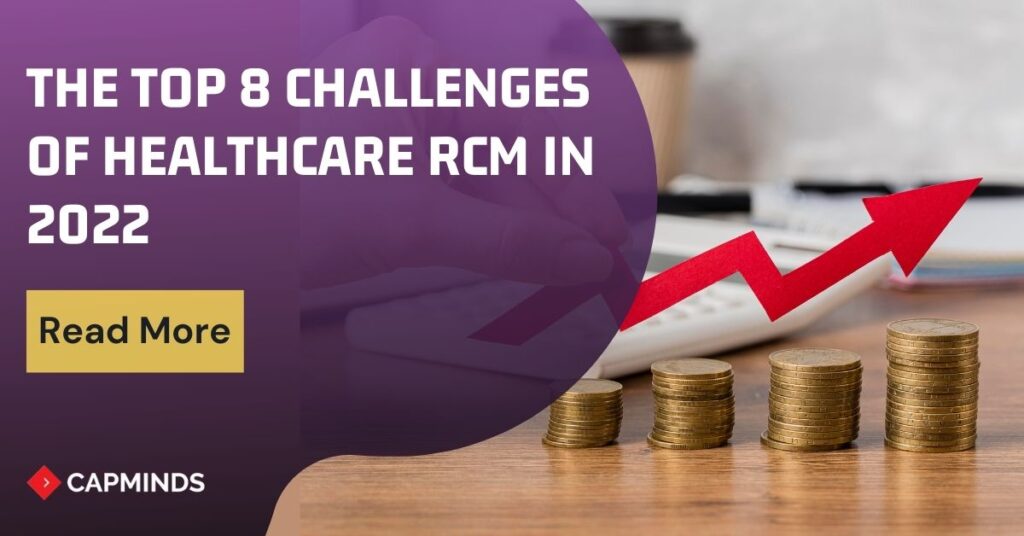The Top 8 Challenges Of Healthcare RCM In 2022
You might think what do finances have to do with healthcare management? A lot. In a healthcare facility, the clinical treatment has a lot of complex procedures involved and if you aren’t careful about them, you will have to face issues that might be too much to take.
Revenue cycle management in a hospital includes activities such as documentation, eligibility for insurance, demographic entry, billing and coding, and filing claims. If these things are not managed properly, it will lead to chaos.
The healthcare revenue cycle keeps evolving and if the hospital management chooses to do the job by themselves, they would be surprised at regular intervals. Most of them will not be the kind of surprises that will be welcomed. They must understand the challenges associated with healthcare revenue cycle management.
Here Are Some Of The Challenges In Healthcare Revenue Cycle Management In 2022
1. Compliance standards
Your revenue cycle management should work according to the guidelines issued by the Healthcare Information Portability and Accountability Act 1996 (HIPAA). If you don’t follow them properly, you might have to shell out millions for fraud and abuse cases.
You must protect the privacy, security, and confidentiality of your patient’s information. It is a must that you stick to all the guidelines issued by HIPAA.
2. Interoperability
When there is no information exchange between different departments, it can lead to a loss of time and might result in increased healthcare costs borne by the hospital. Interoperability is the ability of systems to communicate and exchange information freely.
Thanks to the autonomous nature of hospitals, interoperability is a huge issue as traditional organizations might discourage the sharing of data. Healthcare workers should have access to the patient’s data and they should be able to integrate it with any other system easily.
If you can adopt universal standards in healthcare technology, then you can achieve interoperability.
3. Maintaining cash flow
The state of a good medical organization can be easily gauged by how consistent its cash flow is. If the accounts receivables get cleared on time, then the operations are going smoothly. If not, they need to step up so that the cash that they need to receive is reflected soon in their bank statements.
During times like these, it is suggested that you take the counsel of hospital revenue cycle management service providers.
4. Being patient-centric
When you are operating a big hospital, you are more driven to be process-centered and at no point in time would you think entirely about patients. Why? Because if you are managing all the core and non-core tasks, there is hardly any time to show empathy for patients.
They will start looking like just one more member if you keep yourself too occupied. The time of a doctor and a hospital should be spent on the upliftment of the patient and not on checking if the bills are paid on time or if the necessary software has been updated.
By outsourcing your revenue cycle management, you will be able to spend more time on the patients and come up with ways to be more productive.
5. Employee training
If the healthcare workers are not trained properly, the entire hospital will be in chaos. From billing to capturing the information of data, everyone needs to be trained properly so that there is no hiccup anywhere in the process.
Improper coding, missing items when collecting patient data, wrong billing, inputting wrong dates, policy reminders, chart documentation- all of this will go wrong if the staff is not trained properly.
These training sessions will directly impact your return on investment (ROI) as they will lead to reduced coding and billing errors as well as lesser turnover rates.
6. Using technology
If you want a smooth functioning of the medical organization, then doctors and the staff need to use IT systems to keep track of claims throughout the entire lifecycle. Hospitals need to build such an infrastructure where there is a sturdy billing network as well as large outpatient networks.
Not all hospitals know how to set up such an infrastructure nor are they willing to invest in newer technologies or aren’t aware of the technical know-how. This is exactly why healthcare organizations should outsource their revenue cycle management tasks to a professional vendor.
These vendors will have IT consultants who will help them make smart decisions.
7. Lack of workflows
When you have standard and efficient workflows, you will be able to tell the patient an accurate estimate and even collect fees in advance. For this, you should not be working in silos.
Every department should have good workflows and there should be interoperability among each of them. There should be seamless communication and integration without a lot of manual work.
If there is manual dissemination of information across departments, then it results in a lot of time wasted.
8. Data analytics
Hospitals will have thousands of data points and they should be put to good use. With the right analytics, you will be able to improve patient onboarding time, optimize the time of healthcare staff, steady the cash flow, streamline healthcare information, and so on. If you are still using legacy tools and working with untrained staff, then you are losing out on a goldmine of information.
With healthcare analytics, you can boost medical treatment time, improve patient care quality with information, improve clinical decision support systems, and more.
Come, Let’s join together
Medical organizations need to be vigilant so that they don’t succumb to the above-mentioned issues. The shrinking margins among most hospitals are a wake-up call that healthcare organizations need professional help to streamline their operations.
If you are looking to outsource your revenue cycle management, CapMinds is more than happy to help you. We are a HIPAA-compliant healthcare service provider.
We provide services like medical billing and coding, credentialing, robotic process automation (RPA), aging & coding audit, and more. reach us through the link below to know more about the services provided by us.
We are confident that we will be able to help you overcome the challenges faced in revenue cycle management. Don’t wait any longer. Use this opportunity to outshine in the race.
“Let’s make your revenue cycle management easier and organized, together”



